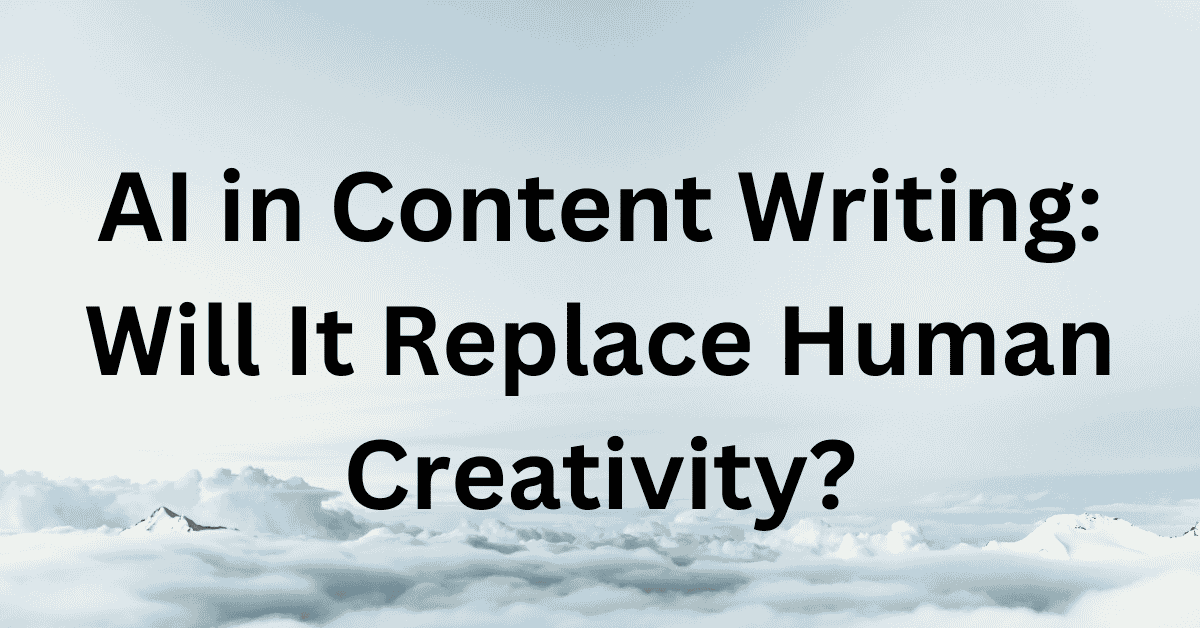Artificial Intelligence (AI) has rapidly entered the content creation field, offering speed, efficiency, and scalability. From blog posts to marketing materials, AI tools like GPT-4 and other content generation models are now being used by businesses of all sizes. However, the burning question remains: Can AI truly replace human content writers, and how does this affect search engine rankings, especially in the context of Google’s guidelines?
Statistics on AI in Content Creation
AI content writing is becoming a significant part of many industries. Here’s a look at some statistics:
- Rapid Adoption: A study by HubSpot in 2023 reported that 46% of marketers are already using AI tools for content creation.
- Efficiency Gains: Statista projects the AI content creation market to grow by 19% annually, highlighting the trend toward automating writing tasks.
- Cost Reduction: Research from Gartner suggests that AI can help businesses cut content production costs by up to 35% when used effectively.
What Are Experts Saying About AI for Content Writing?
Experts in the field of marketing and content strategy have mixed opinions about the use of AI for writing.
- Neil Patel, a digital marketing expert, emphasizes that while AI can produce content at scale, it still needs human oversight to make it engaging and relatable to readers.
- Joe Pulizzi, founder of the Content Marketing Institute, points out that AI works well for factual and structured content but falls short when it comes to creativity and storytelling.
- Rand Fishkin, co-founder of Moz, warns that relying solely on AI for content could hurt user engagement, as the personal touch is lost.
Does Google Like AI-Generated Content?
Google’s guidelines have been clear about content that prioritizes user experience. While Google does not outright ban AI-generated content, it does emphasize quality and relevance.
- EEAT (Experience, Expertise, Authoritativeness, Trustworthiness): Content that lacks these core pillars may not rank well, whether it’s created by AI or humans. AI tools often fail to create EEAT-compliant content without significant human editing.
- Google’s Search Algorithms: Google’s Search Advocate, John Mueller, has stated that Google values helpful and well-researched content over how it’s created. But AI content still requires thorough vetting for accuracy and originality to perform well.
Impact of AI Content on Search Rankings
AI-generated content can impact SEO both positively and negatively, depending on how it’s applied:
- Positive Impact:
- AI can improve speed and efficiency in producing keyword-optimized articles.
- Content tailored for SEO with AI can improve ranking if it’s factual, original, and helpful.
- Negative Impact:
- AI often struggles with unique insights, which may limit the depth of the content.
- Google’s algorithms penalize duplicate or low-quality content, and some AI outputs may be flagged for lack of originality.
Is AI Content Writing for Marketing or Informational Purposes?
AI excels in certain areas of content creation:
- Marketing Content: AI can generate basic marketing materials like product descriptions, newsletters, and social media posts. However, human oversight is still needed to align these with brand voice and strategy.
- Informational Content: For producing purely factual or instructional content, AI can be quite effective. Tutorials, how-tos, and structured guides are areas where AI can contribute significantly.
That said, AI is currently not ideal for creating emotional or creative pieces that require human intuition and a deep understanding of the audience.
Can AI Produce EEAT-Compliant Content?
AI, on its own, struggles to meet the EEAT guidelines because:
- Experience: AI lacks practical, real-world experience that informs and enriches content. It cannot draw from firsthand knowledge or personal anecdotes, which are vital for creating relatable and insightful content.
- Expertise: AI lacks the deep understanding and professional knowledge that a subject-matter expert brings.
- Authoritativeness: AI-generated content does not have credentials or personal authority tied to it.
- Trustworthiness: AI can sometimes produce information that is factually incorrect or misleading, which can impact trust.
Human involvement in content creation is necessary to meet these standards. Writers and editors need to verify AI-produced content for accuracy and relevance to ensure it meets Google’s expectations.
FAQs: Using AI for Content Writing
1. Can AI fully replace human writers?
No, while AI can assist in content production, human writers are still necessary for creativity, emotion, and in-depth analysis.
2. Is AI content good for SEO?
AI-generated content can support SEO if optimized properly, but it must meet quality standards to rank well in search engines.
3. How does Google treat AI content?
Google’s algorithms focus on content quality and relevance, not the method of production. However, AI content should be carefully checked for originality and accuracy.
4. What types of content is AI good at writing?
AI is useful for repetitive or structured content such as product descriptions, SEO writing, and factual articles. However, it needs human input for creative or personalized content.
5. Is AI writing content cost-effective?
Yes, it can be more affordable, especially for large-scale projects. However, costs may increase if significant human editing is required.
Conclusion: Is AI Content Right for You?
AI tools for content writing are here to stay, offering significant benefits for speed, efficiency, and SEO-focused writing. However, human input remains vital for creating engaging, well-researched, and EEAT-compliant content that performs well in search engines. The best approach is to use AI as a support tool, combining its capabilities with human creativity and expertise to get the best results.







